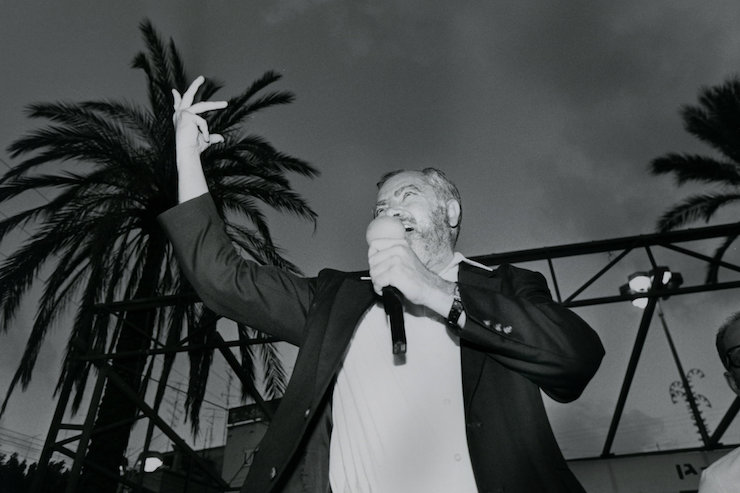If the polls are accurate, more than 140,000 voters will vote the Kahanists back into the Knesset in next week’s election. Yet the desire for a pure Jewish state long ago moved from the margins of Israeli society to the mainstream.
By Ron Cahlili

One week before Israel’s national election, nearly every major poll shows the Kahanist party Otzma Yehudit (Jewish Power) winning enough votes to cross the threshold. Until recently, the party was widely considered the rotten apples of the Israeli political barrel — a fringe party that represented a tiny subculture. Now it looks likely to take four seats in the Knesset. To put the matter into perspective, the once-dominant Labor — Ben Gurion and Golda Meir’s party — is barely holding on.
The ideology of Otzma Yehudit is hatred of Arabs. Some, by the way, might remember that Netanyahu backed the Kahanist party in the last election. So now hatred of Arabs as a political ideology is part of the mainstream political discourse. More than 140,000 Israeli citizens will likely cast their votes against what is left of a sane and peace-seeking Israel.
More than 140,000 people will declare that they want a pure Jewish state, Arab-rein forever. They don’t actually mind a few Arabs here and there, as long as the latter know their place in the racial hierarchy. The Jewish Israeli is on top, and the Arab joins the leftists and the other foreigners at the bottom rung. No kuffiyeh or hijab. No mosque or muezzin. Only minimal presence, like a passing shadow.
If this does indeed come to fruition (and even if the Kahanists only receive 100,000 votes), the mechanisms of anti-Arab hatred that have been part of the State of Israel since its establishment will have reaped what it sowed.
This includes an education system that does not teach anything about Arab culture or history; an army that turned Arabs into targets that need to be “neutralized”; a mainstream media that presents Arabs as either terrorists or ignorant peasants; social media outlets in which hate speech against Arabs is posted every 71 seconds; a right-wing government that turned incitement against the Arabs into a legitimate tool of governance; the left-wing alternatives compete with one another over who killed more Arabs. All of these will receive a bonus next week, their work having exceeded expectations.
Aside from the Joint List, Labor, and the Democratic Union, the other Israeli parties long ago shed the genteel hypocrisy that defined the first days of the post-1948 state. For them, there is no such thing as a “good Arab” or a “bad Arab,” the way David Ben Gurion — and even Yitzhak Rabin during his second premiership — saw it. For these parties, every Arab is an enemy. No nuances. We may still be living in an era of political correctness, but the Israeli right — from the Blue and White party to Otzma Yehudit to the ultra-Orthodox parties —long ago adopted Ehud Barak’s mantra that there is “no partner” for peace. And any way you look at it, the underlying meaning of this viewpoint is akin to saying, “death to Arabs.” Not in the practical sense, though this does happen as well, but in the declarative, ideological, and symbolic sense.
So yes, we are all immersed in hatred of Arabs. It has become the new patriotism, the modern Israeli identity, or at least one of its most significant aspects. This is equally true for long-term residents and new immigrants, in far-flung regions of the country and in Tel Aviv, Ashkenazi and Mizrahi, religious and secular. No one can dodge the Zionist hate machine. Obviously this shocking; we are always shocked. But we keep moving forward, following the path toward the next horizon.
Cultural shifts always begin at the margins of society. Those who are defined today as marginal will tomorrow be seen as part of the mainstream. If yesterday the Kahanists were outlawed and boycotted by every media outlet, today they are pulling in Israeli voters.
I hate to admit it, but I prefer Otzma Yehudit speaking their truth to the political correctness of right-wing Israelis. At least we know who we are dealing with. And so do the Arabs.
Ron Cahlili is a filmmaker based in Tel Aviv. A version of this article was first published in Hebrew on Local Call. Read it here.

